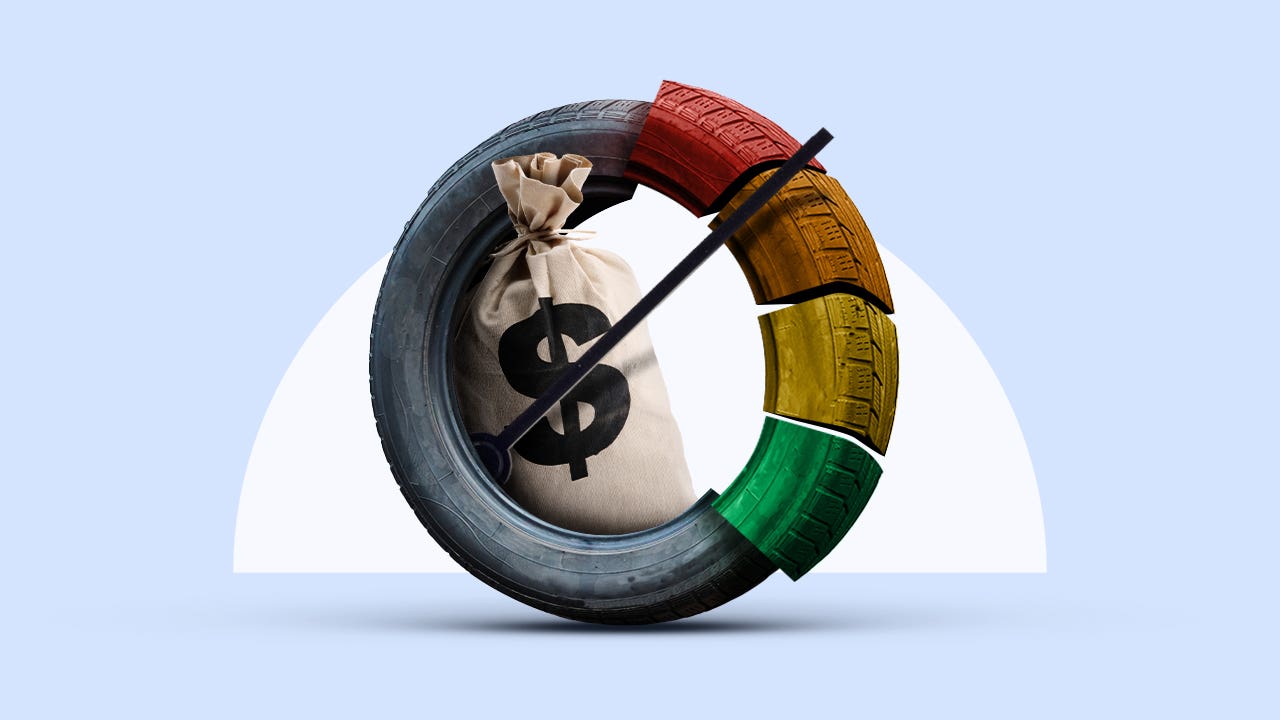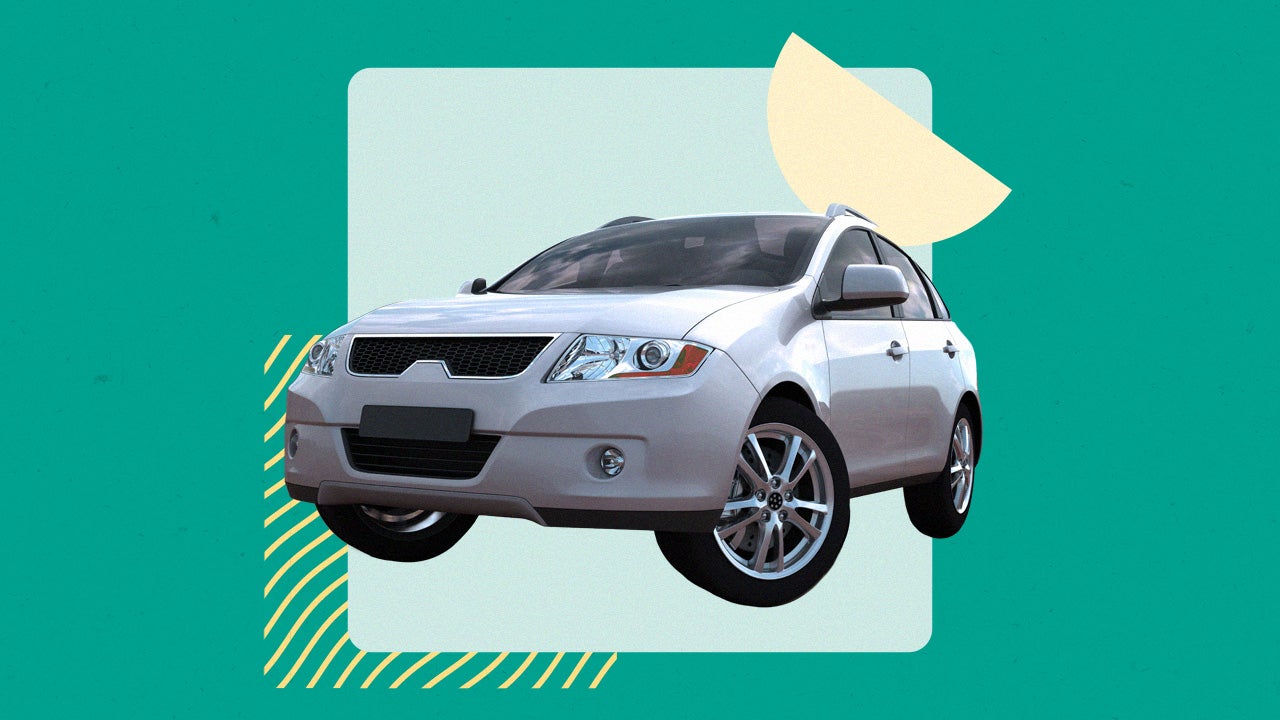How to refinance a car loan with bad credit

Key takeaways
- You should still shop for the best auto refinance rates and terms even if you have bad credit — there is still a chance to find a competitive option for your budget.
- Refinancing your car loan with bad credit may make sense if you can lower your monthly payment by spreading your loan out over a longer term.
- If refinancing your car loan isn’t an immediate need, take steps to improve your credit score to qualify for better rates and more flexible terms.
You can refinance a car loan when you have bad credit, but it may be more difficult and substantially more expensive. Lenders may require that the vehicle have significant equity, be a newer model year or have low mileage. You may also need to meet more stringent debt-to-income (DTI) ratio requirements than a borrower with excellent credit.
If you’re finding it hard to make your car payment every month due to rising costs, increasing car insurance premiums or unexpected expenses, auto loan refinancing may provide some relief. However, you are unlikely to qualify for a competitive annual percentage rate (APR) with bad credit, and the cost of refinancing may outweigh the benefits.
Steps to refinance a car loan with bad credit
Just like shopping for a new or used car, the process of refinancing a car loan with bad credit requires more upfront research. You don’t want to waste time shopping at a lender if your vehicle doesn’t meet its bad credit lending requirements.
If you decide to move forward, the steps to refinancing your auto loan are fairly similar, regardless of whether you have good or bad credit. Start by considering the pros and cons of refinancing and reviewing your financial situation before you decide on a lender.
1. Research common requirements
Standard loan-to-value (LTV) ratios, mileage and vehicle refinance requirements may not apply if you have bad credit — but lenders may not be upfront about it online. Reach out by phone or email to customer service and connect with a representative to ask questions.
Here’s what you should find out before taking any steps:
- What is the minimum and maximum I can borrow with bad credit?
- What is the maximum LTV ratio?
- How much equity do I need to have in my car?
- Are there any restrictions on the make, model, age or mileage requirements?
Even for borrowers with good credit, lenders typically restrict refinancing to vehicles that are under 10 years old or have less than 100,000 miles. You may need a lien-free title, a strong income or minimal debts in addition when you apply to refinance with bad credit.
You will also need to meet standard title requirements, which means you may have a tough time refinancing a salvage title vehicle. You may also need a low LTV to give the lender more equity if it has to repossess and resell your vehicle due to default.
2. Check your credit score
Your credit score will determine your interest rate, loan amount, loan terms and, in some cases, the vehicle requirements for approval. Bad credit lenders set different standards and rates to offset the perceived risk you might not be able to repay the loan.
Review your credit score and credit report to avoid any surprises before you start shopping to refinance your auto loan. If you notice any inaccurate or outdated information, file disputes promptly with the credit bureaus — Experian, TransUnion or Equifax. And if possible, wait to refinance until you have improved your credit score — this can help get you lower interest rates and a better overall deal.
3. Apply for a new loan
While you may face less favorable terms when refinancing with bad credit, there are options. Check with your current bank or credit union first — or consider some of the bad credit auto lenders featured on Bankrate.
Once you have a few quotes, compare your total costs and your monthly payments to determine if refinancing makes sense. Use Bankrate’s auto loan refinance calculator to estimate your potential savings. In general, refinancing only makes sense if it saves you money on interest or reduces your monthly payment.
Your current lender may offer refinancing, but it is more likely that it offers car loan modification instead, which can be a good alternative if you’re facing temporary financial hardship.
Before submitting a loan application, gather any documents the lender will need to expedite the review process. You will typically need the following items:
- Your car’s mileage, make, model and VIN.
- Proof of income and residency.
- Information about your current auto loan.
- Your auto loan’s payoff quote.
- Your existing auto insurance policy.
When you apply, be as accurate as you can about your income to avoid a denial later. The lender will vet the information you provide and may require more to approve your loan with bad credit. You may need to provide additional documents if you’re self-employed or have a variable income.
4. Finalize your loan
Review the loan documents to ensure the terms and conditions match up to what you reviewed when you prequalified. If everything is correct, most lenders will allow you to electronically sign paperwork to finalize the transaction. Your new lender will send the loan amount directly to your current lender to pay the original loan off.
Check with your lender to see when you begin making payments. From here, you will follow the new monthly payment schedule until you pay off your refinanced loan.
You’re responsible for payments to your current lender until the refinancing process is complete. Confirm when the old loan will be paid off, and double-check your old loan balance to make sure it is complete.
Should you refinance a car with bad credit?
There can be significant risks in refinancing with bad credit, and you will benefit the most from refinancing when your credit score is in the good to excellent range. However, there are times when refinancing your auto loan with bad credit makes sense.

When to consider refinancing with bad credit
- You can’t afford your current loan payment. If you’ve suddenly experienced a drop in your household income or an increase in your ongoing expenses, a high monthly loan payment can stress your finances. Refinancing your auto loan can extend the term and give you room in your budget.
- You’ve got plenty of equity. If you’ve already paid down a good chunk of your loan, you won’t need to borrow as much. That can lead to a much lower payment on the new refinanced balance, especially if you extend your loan term.
- Your car is relatively new. Lenders may scrutinize your car more if you have bad credit. A newer, well-maintained vehicle with low mileage will be a better risk for a lender — and may increase your chances of approval if you have bad credit.

Risks of refinancing with bad credit
- You could end up paying more total interest. Lenders start a new loan term when you refinance your auto loan. If you choose a longer repayment term than you currently have for your auto loan, you’ll pay more total interest.
- You’ll make less if you have to sell your car. Cars lose value relatively quickly as they get older. If you choose a longer term and are still carrying a loan balance later in the car’s life, you could significantly reduce the amount you net when the car is sold.
- You might pay prepayment penalties. Although they’re rare, if you owe the lender a fee for paying your current loan off early, refinancing may not be worth it.
Imagine you originally borrowed a $20,000 auto loan with an 18.99% APR and a 36-month term. After a year, you have a remaining balance of $14,543 and 24 months left to repay your loan.
If you choose to refinance and take out a new loan with a 48-month term but don’t reduce your interest rate, you will have a lower monthly payment but end up paying significantly more in interest.
| Loan balance | Loan term | Monthly payment | Total interest paid | |
|---|---|---|---|---|
| Original loan | $20,000 | 36 months | $733 | $6,389 |
| New loan | $14,543 | 48 months | $488 | $6,524 |
Keep in mind that the interest you pay after refinancing is in addition to any interest already paid on your original loan. For this example, you will have paid $3,569 in interest during the first year. Once you finish repaying your new loan, the total interest cost will be over $10,000. If you instead chose to keep a higher monthly payment and not refinance, you would pay just under $6,400. This is why most experts caution borrowers to avoid refinancing at a longer term.
Lenders that refinance bad credit car loans
Most major banks and credit unions only offer auto loan refinancing to borrowers with at least fair credit. Some may make exceptions if you have a long-standing relationship, but more than likely, traditional lenders won’t accept bad credit. For borrowers with bad credit, marketplace lenders — services that aggregate online lenders — work with several financial institutions to help people obtain loans.
These marketplace sites currently featured on Bankrate offer options to refinance with bad credit. Many will accept scores under 620, though you should expect higher interest rates and less favorable terms.
| Lender | APR | Best for | Minimum credit score |
|---|---|---|---|
| RefiJet | 4.49%-21.99% | Drivers with very low credit scores who can take advantage of the lenders two-month payment hiatus option. | 540 |
| Autopay | Starting at 4.85% | Comparing loan options side-by-side without a hard credit pull. | 580 |
| Caribou | 4.64%-28.55% | Those who are looking for extra online support during the refi process. | 600 |
Bottom line
Unless you are experiencing financial hardship, refinancing your auto loan with bad credit is typically a risky option. If you decide to refinance with a longer term to lower your payment, remember: you can always make extra payments to reduce your term if your financial situation improves. If you bought too much vehicle for your income and budget, it may make more sense to trade the vehicle in and downsize to something that’s more affordable.
Why we ask for feedback Your feedback helps us improve our content and services. It takes less than a minute to complete.
Your responses are anonymous and will only be used for improving our website.





